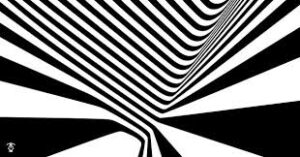
These days, when you read about all the bad things Siddhartha “discovered” (sickness, old age, death), you learn that medical care isn’t the be-all and end-all to happiness and endurance. In fact, two basics available to all of us work better than anything Big Pharma can create and profit from: love and nature.
Maybe the 60s hippies were on to something. You don’t need to be a lab mouse to know that having someone who cares about you, holds you, and listens to you will also be helping you to feel more confident, loved, and healthy.
Turns out stepping out into nature is equally salubrious. Whose woods these are I think I know—they’re yours!
In our time (notice the “no” in “technology”) we spend too much time indoors. It pays to break free. Our ancestors were much better at it than we are, but that doesn’t mean you can’t act like an old soul, don a coat, and head out the door without a shopping list, a mission, or a car key in hand.
For meditative purposes, it is especially good if you can do it alone or, as I do, with the dog, who is not inclined to engage in conversation. For instance, this morning, just before sunrise, the full moon is up over the pond, casting its gleamy on the softening ice below.
The moon, she follows us as we walk, passing smoothly through the bramble of treetops, playing hide and seek behind the occasional evergreen. Moons get lonely, too, you know.
Air, you’ll find, seems cleaner in the morning, and the sky has a way of highlighting cloud formations by casting them in relief. The heavens are an underappreciated museum. Each morning, a new gallery.
Breathe deep! And stop thinking about the day ahead. This is the day ahead, right here and now.
Walking across the snow-covered field, there’s the crunch as snow gives beneath the boots. The dog stops to bury his snout in the hoof prints of last night’s deer passage.
Deer here are ghostlike. Maybe because they are hunted more frequently in these parts. They’re not your trample-the-lawn-and-browse-the-shrubbery-surrounding-the-house-foundation kind of deer found in more crowded suburbs.
More likely you’ll hear deer, not see them, which is why they are ghost deer.
But the woodpeckers are not ghostly. Just industrious. You hear AND see them. When you hear the soft tapping, you just have to cast your glance up, stand in the silence, and focus on the towering trunks of trees.
The tapping seems the only sound on earth. And you could do worse, I’ll tell you. When you find him, just watch him go about his business for a few minutes. He is very much in the moment, too. In that way, you cheer each other.
After a bit, you can head back to your loved one, still sleeping. You’ll feel healthier, younger, more alive and connected to a world that considers you as much an animal as white-tailed deer and pileated woodpeckers.
Science says so, but listen to your spirit. It’s an introvert, but will talk if you seek it out, give it an ear and the patience of time.
Time spent doing nothing, I mean. A nothing which is everything.



